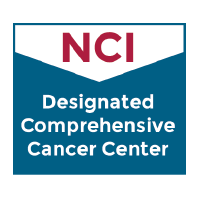
Thyroid Cancer
Thyroid cancer is more common among women than men and accounts for only one percent of all cancers diagnosed in the United States. Most thyroid cancers grow slowly but certain types can be aggressive.
There are four major types of thyroid gland cancer: anaplastic, follicular, medullary and papillary. These types of thyroid cancer look differently under a microscope and generally grow at varying rates.
- Anaplastic cancerAnaplastic cancer is the fastest growing type of thyroid cancer. The cancer cells are extremely abnormal and spread rapidly to other parts of the body. Anaplastic cancers make up only about 2 percent of all thyroid cancers and are generally difficult to cure.
- Follicular cancerThis type of cancer also develops in thyroid cells that produce iodine-containing hormones. Most follicular cancers can be cured. About 10 percent to 30 percent of thyroid cancers are follicular cancers. These cancers are well differentiated, meaning slow growing and contain cells that are similar to healthy thyroid cells.
- Medullary cancerMedullary cancer is more difficult to control than papillary and follicular thyroid cancer. The cells involved in medullary cancers produce calcitonin, a hormone that does not contain iodine. About 5 to 7 percent of all thyroid cancers are medullary cancers.
Of the four types of thyroid cancer, only medullary thyroid cancer can be inherited, which is caused by an alteration in the RET gene. Individuals who inherit this alteration are almost certain to develop medullary thyroid cancer at some time in their lives. - Papillary cancerThis type of thyroid cancer develops in cells that produce thyroid hormones containing iodine. Papillary cancer is well-differentiated, meaning that it grows very slowly and contains cells that are similar to healthy thyroid cells. Doctors usually can treat these cancers successfully, even when cancer cells have spread to nearby lymph nodes. Papillary cancers account for about 60 percent to 80 percent of all thyroid cancers and have a favorable prognosis.
Our Approach to Thyroid Cancer
UCSF provides cutting-edge care for thyroid cancer, delivered in a comfortable and supportive environment. Thyroidectomy (surgical removal of the thyroid gland) is the recommended treatment for most cases. UCSF surgeons offer minimally invasive approaches to this procedure that result in less discomfort and lower risk of complications after surgery, and leave either no scar or a small scar hidden under the chin.
We also offer all other treatments for thyroid cancer, including radioactive iodine therapy, thyroid hormone therapy and chemotherapy.
Awards & recognition
-

Among the top hospitals in the nation
-

Best in Northern California for cancer care (tie)
-

Best in Northern California for diabetes care & endocrinology
-

Designated comprehensive cancer center
UCSF Health medical specialists have reviewed this information. It is for educational purposes only and is not intended to replace the advice of your doctor or other health care provider. We encourage you to discuss any questions or concerns you may have with your provider.





